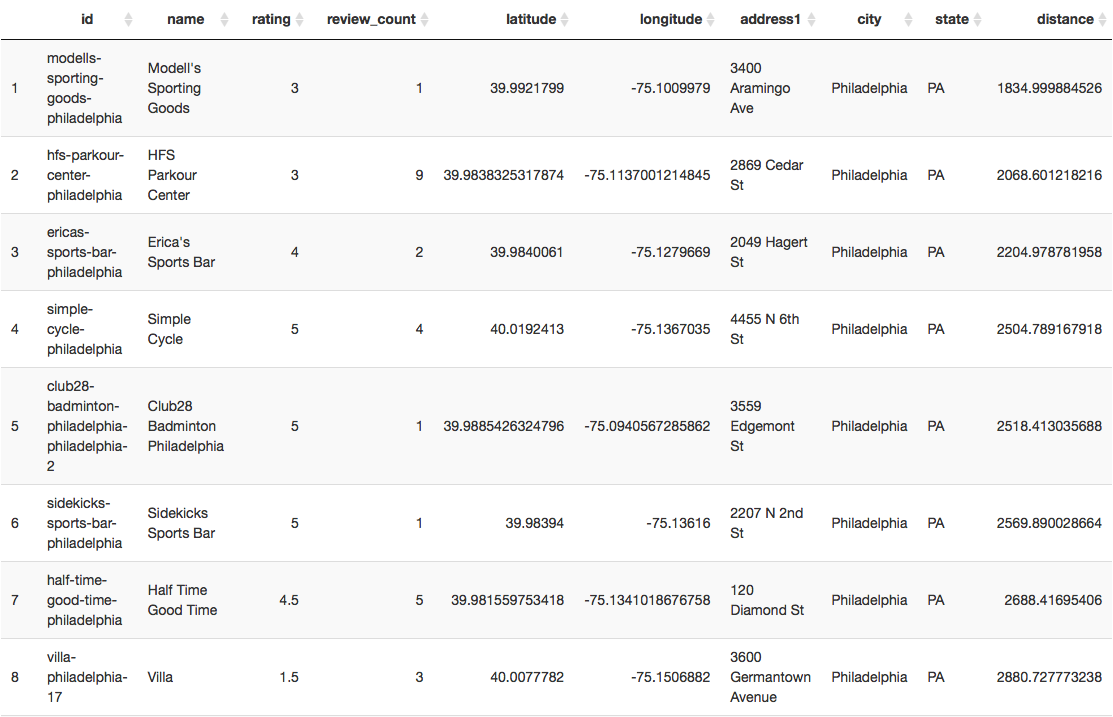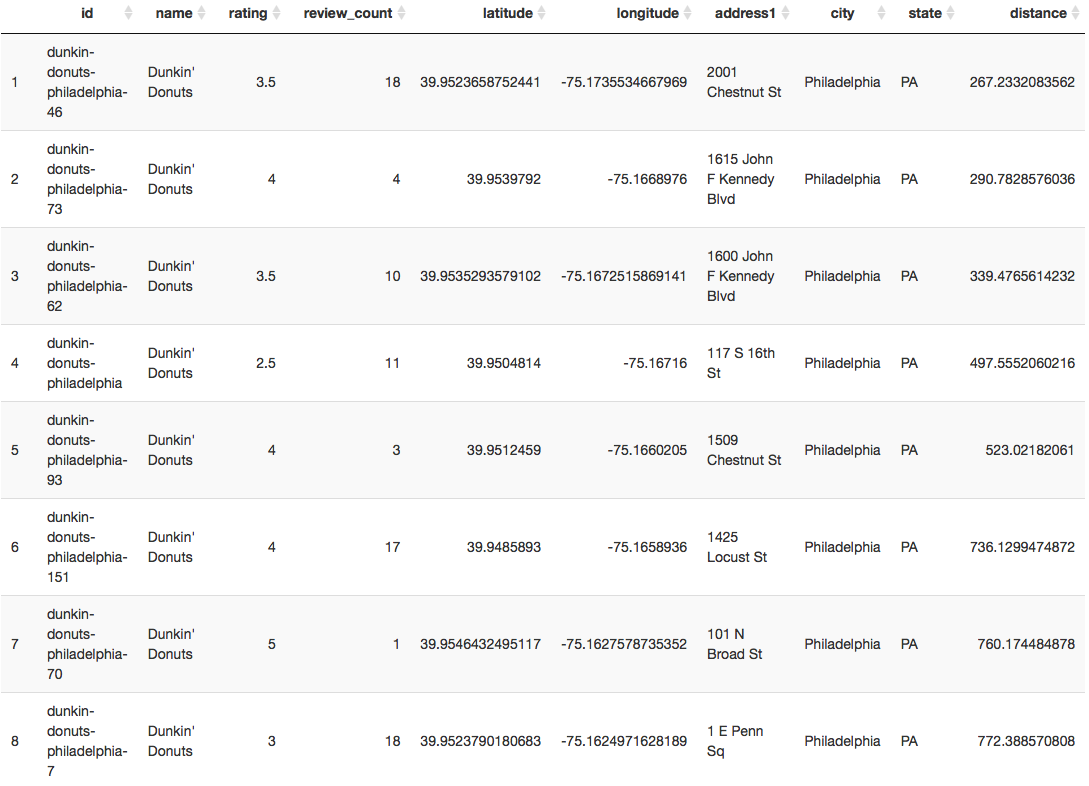This is a guide to using the Yelp API with R. The approach borrows liberally from advice published by Jenny Bryan.
First, load required packages:
require(tidyverse)
require(httr)
Second, create a token for use with your API request. This requires that you have a client_id and a client_secret, both of which are provided when you create an app through their developer area:
client_id <- "your client_id"
client_secret <- "your client_secret"
res <- POST("https://api.yelp.com/oauth2/token",
body = list(grant_type = "client_credentials",
client_id = client_id,
client_secret = client_secret))
token <- content(res)$access_token
Next, you build the url for your query. In this example, we will query businesses with the term sports within 5 miles of Philadelphia:
yelp <- "https://api.yelp.com"
term <- "sports"
location <- "Philadelphia, PA"
categories <- NULL
limit <- 50
radius <- 8000
url <- modify_url(yelp, path = c("v3", "businesses", "search"),
query = list(term = term, location = location,
limit = limit,
radius = radius))
res <- GET(url, add_headers('Authorization' = paste("bearer", token)))
results <- content(res)
Now that we have the data we can create a function to parse and format the data:
yelp_httr_parse <- function(x) {
parse_list <- list(id = x$id,
name = x$name,
rating = x$rating,
review_count = x$review_count,
latitude = x$coordinates$latitude,
longitude = x$coordinates$longitude,
address1 = x$location$address1,
city = x$location$city,
state = x$location$state,
distance = x$distance)
parse_list <- lapply(parse_list, FUN = function(x) ifelse(is.null(x), "", x))
df <- data_frame(id=parse_list$id,
name=parse_list$name,
rating = parse_list$rating,
review_count = parse_list$review_count,
latitude=parse_list$latitude,
longitude = parse_list$longitude,
address1 = parse_list$address1,
city = parse_list$city,
state = parse_list$state,
distance= parse_list$distance)
df
}
results_list <- lapply(results$businesses, FUN = yelp_httr_parse)
payload <- do.call("rbind", results_list)
And here are our results:

We can wrap the previous steps into a single function:
yelp_business_search <- function(term = NULL, location = NULL,
categories = NULL, radius = NULL,
limit = 50, client_id = NULL,
client_secret = NULL) {
yelp <- "https://api.yelp.com"
url <- modify_url(yelp, path = c("v3", "businesses", "search"),
query = list(term = term, location = location, limit = limit,
radius = radius, categories = categories))
res <- GET(url, add_headers('Authorization' = paste("bearer", token)))
results <- content(res)
yelp_httr_parse <- function(x) {
parse_list <- list(id = x$id,
name = x$name,
rating = x$rating,
review_count = x$review_count,
latitude = x$coordinates$latitude,
longitude = x$coordinates$longitude,
address1 = x$location$address1,
city = x$location$city,
state = x$location$state,
distance = x$distance)
parse_list <- lapply(parse_list, FUN = function(x) ifelse(is.null(x), "", x))
df <- data_frame(id=parse_list$id,
name=parse_list$name,
rating = parse_list$rating,
review_count = parse_list$review_count,
latitude=parse_list$latitude,
longitude = parse_list$longitude,
address1 = parse_list$address1,
city = parse_list$city,
state = parse_list$state,
distance= parse_list$distance)
df
}
results_list <- lapply(results$businesses, FUN = yelp_httr_parse)
payload <- do.call("rbind", results_list)
payload <- payload %>%
filter(grepl(term, name))
payload
}
Now, we can use that function to find all Dunkin Donuts locations within 10 miles of Philadelphia, PA:
results <- yelp_business_search(term = "Dunkin' Donuts",
location = "Philadelphia, PA",
radius = 16000,
client_id = client_id,
client_secret = client_secret)
And our results:
